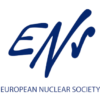Tractebel Leads EU Project On Advanced Nuclear Space Technologies
Following the recent contract awarded by the European Space Agency, Tractebel (ENS Corporate Member) has now been selected to head the consortium of PULSAR, a research and innovation project funded by the European Commission to develop nuclear technology to power space missions.
Tractebel will conduct research on dynamic radioisotope power systems (RPS) fueled by plutonium 238 (Pu-238) for space applications. The project will complement the study that Tractebel has already been carrying out on behalf of the European Space Agency (ESA) to evaluate the possibility of producing Pu-238 in Europe. RPS are vital to providing spacecrafts and astronauts with electricity and heat where the sun does not provide sufficient power.
They use the heat from the natural radioactive decay of PU-238 to produce electric power. The project will be funded by the Euratom Research and Training Program (2021-2025), a complementary funding programme to Horizon Europe covering nuclear research and innovation.
European space missions
The PULSAR project brings together leading stakeholders in the fields of aerospace and nuclear within a consortium led by Tractebel. The consortium includes the Joint Research Centre (JRC) of the European Commission, the Belgian Nuclear Research Centre SCK CEN, the French Alternative Energies and Atomic Energy Commission CEA, INCOTEC, ArianeGroup, Airbus Defense and Space, the University of Bourgogne Franche Comté and Arttic. Each partner will bring state-of-the-art expertise in its respective field, to contribute to the success of this Europe-wide project.
Current nuclear batteries, the so-called radioisotope thermoelectric generators (RTGs), have low conversion efficiencies. This means that substantial amounts of fuel and large RTGs are needed to power missions, which increases the weight to be launched by the space rocket, adversely affecting rocket payload capability.
The project aims to address the issue in two ways. It aims to further develop technology and capabilities in Europe to produce Pu-238 to fuel radioisotope power systems (RPS). Its second objective is to significantly increase the efficiency of the RPS thanks to an advanced Stirling engine.
Read the full Tractebel Press Release.
Tractebel has also recorded a Podcast and done an interview on the PULSAR project with their experts:
